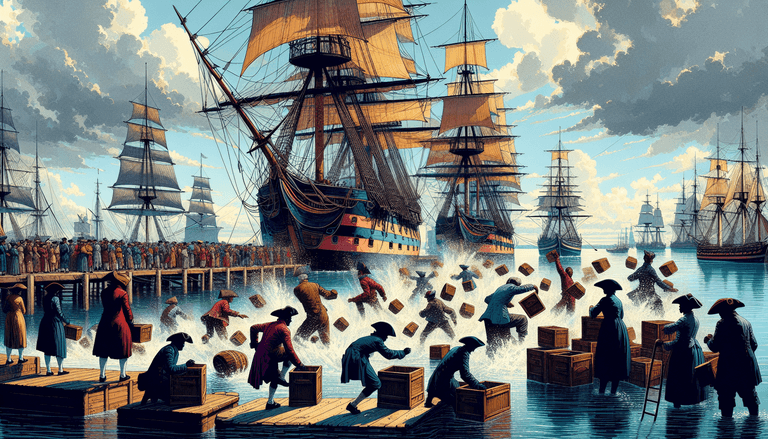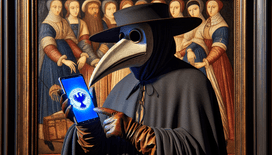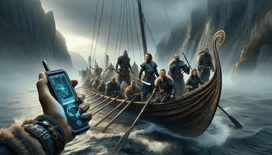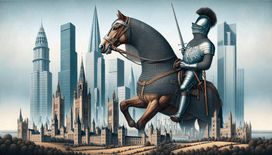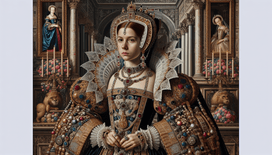Picture this: It's December 16, 1773, and Boston is abuzz with an air of rebellion that even the cold New England air can't cool. The disgruntled colonists are grumbling over their morning pints of ale as they scroll through TheirMajesty'sFeed, a social media platform where hashtags like #TaxationWithoutRepresentation and #TeaTrouble are trending more aggressively than woollen socks during a winter sale.
The Hashtags Begin to Brew
In the corner of the Green Dragon Tavern, Samuel Adams, the original social media maven, is squinting at his smartphone. His latest tweet reads: "Got tea? Not for long! #NoTaxationWithoutRepresentation #BostonTeaParty." In this alternate timeline, the power of 280 characters is about to ignite a revolutionary flame brighter than any lantern in Old North Church.
The East India Company, flustered by the public relations storm brewing across the Atlantic, attempts to quash the rebellion with a series of poorly conceived social media ads. Unfortunately, their hashtag #TeaIsGoodForThee falls flatter than a soggy scone.
A Real-Time Revolution
As twilight descends over Boston, social media feeds light up like a lighthouse guiding colonial mariners. A video uploads, showing a large group of 'Mohawk Indians', or as we know them, the Sons of Liberty in cosplay, stealthily approaching Griffin's Wharf. The secret is out, and it's drumming up more online engagement than any cat video or redcoat dance challenge.
The social at sea escalates as the first chest of tea is hurled into the icy waters. Each splash echoed across the colonies through live tweets and streams, as eager viewers tag each post with #TeaToss #BostonSplash. As the harbour turns into the world’s largest teapot, gifs of the famous chests sinking into the sea circulate faster than conspiracy theories about King George's taste in hats.
Influencers and Instigators
John Hancock, the influencer of his day, is trending. His vlog description of the night's antics paints a vivid tableau, ensuring that his follower count soars like the sails of the Clippers. His charisma and clever use of "HancraftyHacks" tips on evading the Loyalists' social media censorship seals his status as a colonial celebrity.
Meanwhile, Paul Revere utilises his recently established podcast "Midnight Rides & Musings" to discuss the evening’s events, mixing historical insight with a cheeky amount of horse-related humour. His signature sign-off, "The British aren't coming... yet," becomes a catchphrase across the colonies.
From Retweets to Revolution
Back in London, the British Parliament is caught in the eye of a social media storm quite unlike its usual London drizzle. The hashtags #ColonialChaos and #BosTeaParty are plastered all over Parliament's notifications. A poorly timed tweet from a certain Lord Cornwallis, "Let them drink Earl Grey!", spreads like wildfire, as memes of bewigged aristocrats sipping tea flood the internet.
The Boston Tea Party's virality only emboldens other colonies. With each retweet and like, the embers of revolution are fanned into flames. Soon enough, parody accounts, think @KingJoggingGeorge, mock the King's every move, building a narrative more relatable than the never-ending debates of Westminster.
Cultural Ripples
The events of the Boston Tea Party ripple through history, the likes of which send shivers down the spines of British merchants and American tax collectors alike. Harvard historians speculate over this "Social Media Rebellion," crediting it with setting the stage for a full-blown revolutionary war that would follow these Tweets with shots rang out.
In this social-media-steeped alternate reality, unfollowing or blocking isn’t enough. The people want more than just a change in feed, they seek a revolution. In the end, it appears the colonists’ demand for independence found a perfect platform... living proof that even history itself can go viral, one tweet, like, and hashtag at a time.
